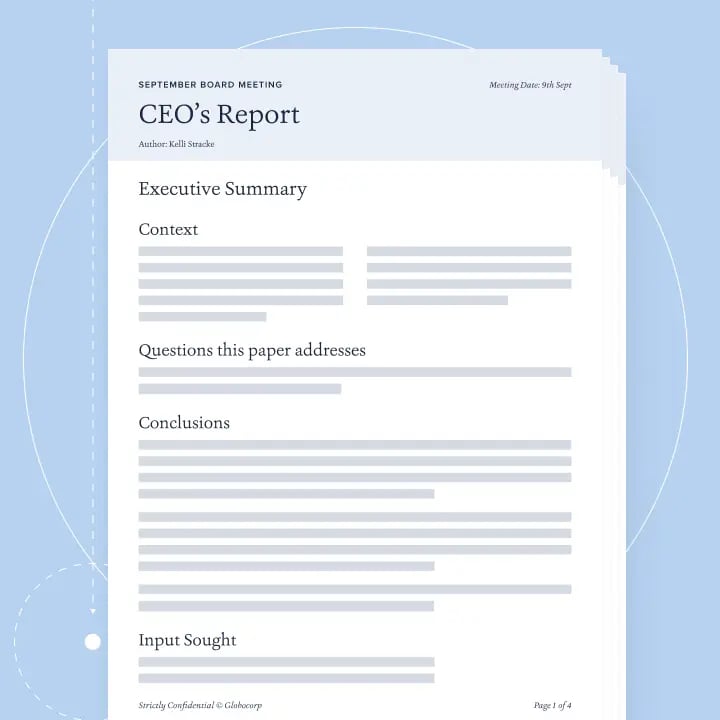This article is part of a series exploring critical thinking in business.
The power (and problem) of questions
New tastes, new technologies, new competitors… Changes like these just keep on coming. One of them could destroy your business, another could be the making of it. Will you recognise the change when you see it? And will you respond the right way if you do?
History is strewn with once-successful companies that failed to do so, from Kodak burying the pioneering digital camera invented by one of its own engineers and Blockbuster turning down the chance to buy Netflix for $50m, to the countless lost chances known only to those who lost them.
In most cases, businesses fail to react and adapt to change because they don’t ask the right questions, the ones that could have helped them see things differently. Take Kodak, for example. Had they asked “What will eventually replace camera film, as camera film once replaced photographic plates?” or “If we don’t sell digital cameras, who will?”, they might have seen the opportunity in their engineer’s prototype and acted on it sooner.
On the flip side, questions are the driving force behind most of our successful discoveries and innovations. The multibillion-dollar sports drinks sector exists because back in 1965 the assistant coach of the University of Florida football team, the Gators, asked, “Why aren’t players urinating more?” It’s a question no one had asked before, but neither the coach nor his friend, a medical researcher at the university, could put it down. They went on to discover electrolyte losses among athletes and then create the energy drink Gatorade.
“Why aren't players urinating more?”
~ Dewayne Douglas, American football player and coach
Questions are powerful. They help us imagine new ideas, explore, probe, and test them. They help us make sense of change and construct robust plans. They empower us to solve problems and exploit opportunities. They’re the foundation of collective intelligence, because they fuel the critical thinking that every business depends on.
And yet, it seems we don’t ask nearly enough of them. And when we do, we don’t ask the right ones. When our days are spent in back-to-back meetings, fielding instant messages and emails, and wading through reports, there isn’t much time for thinking. So it’s no wonder that 88% of the business leaders who took our Agility Friction Test say they don’t have the quality of thinking they need or would like throughout their organisation.
The challenge for businesses is therefore a simple one: to get your people thinking well, you need to harness the power of questions and get everyone asking more of the right ones. So how do you do that?
What are the right questions, and why don’t we ask them?
It matters which questions you ask, and when. “How can we do what we did last year, plus 5%?” can be a useful question in certain circumstances, but it won’t help you if the answer to the bigger question that you didn’t ask — “Should we be doing the same thing as last year?” — is “No.”
As it turns out, the right questions are the ones that will help you see the situation as it truly is, so you can do something about it. And they often hide in plain sight.
Sometimes it’s because they’re so obvious we don’t even think to ask them. Like, “Why are we doing this?” or “Is there another option?”
Other times, it’s because asking them makes us feel uncomfortable — by challenging our assumptions, surfacing inconvenient truths, or revealing that we’ve got something wrong.
Take the Post Office scandal, for example. As one observer commented to The Financial Times, “Why did the [Post Office] board not question the level of fraud implicit in all these cases? In corporate life fraud is rare, so why did senior management think this level of fraud was real and not a signal of a different problem?” It’s easier not to ask yourself these tough questions, but that’s how blind spots develop.
Step 1: Focus on the simple questions
Start by keeping it simple. The good news is that you’ve been asking the best questions, like “What happened?”, “Why?”, “How?” and “So what?”, since you were a child. Unfortunately, we tend to fall into the trap of believing that simple, obvious questions are not clever enough, and this prevents us from thinking critically.
Former UK Border Force chief executive Rob Whiteman once told us about his experience coming before a House of Commons Select Committee. He spent three hours being grilled by MPs over problems in the department that he’d just joined.
“They had prepared over 60 closed and carefully worded questions for me, each one intended to . . . reveal new problems,” Whiteman recalled. “They were each desperate to be the one to deliver the killer blow.”
Later, he realised how long the MPs must have spent agitating over their questions, and how utterly ineffective they were. “What they never asked me was ‘What’s going on? What concerns you?’, which would have given them so much more. If they’d asked me what was wrong, I was duty-bound to tell them.”
Clever questions are great for debate winning and point scoring. They can be used to establish status (“I’m the one asking the questions around here”) or catch people out (“So, when did you stop shoplifting?”).
But they can also conceal biases and assumptions, whereas simple questions tend to reveal them. They can also make it easy not to give an answer at all; how many times have you seen a politician latch on to part of a convoluted question to swerve the rest of it?
To use questions for better thinking, stop trying to be so clever and keep it simple.
Step 2: Ask. More. Questions.
Now we know that the best — and toughest — questions are the simple ones, we need to find a way to ask them more often.
Famed architect Frank Gehry set an example for us all in 1991, when he visited the Spanish city of Bilbao. Officials there wanted him to transform a former wine warehouse in a run-down corner of the city into a modern art gallery.
Excited to hear his pitch, they were somewhat taken aback when Gehry’s sketchbook remained unopened, in the bag by his feet, during the meeting. Instead, he asked a simple question: “Why are you doing this?”
They thought they knew, but Gehry wasn’t satisfied. He kept asking why. After much digging, he eventually put his finger on what his clients in Bilbao really wanted — and their ambitions were rather loftier than the original brief had implied. They wanted the building to do for their post-industrial city what the Opera House had done for Sydney, to change its image and put it on the map.
Rather than renovate an old building, Gehry suggested that to deliver this grand vision they should construct a bold new building on a derelict but spectacular waterfront site. It was an approach that the officials hadn’t even realised they wanted, until Gehry had thoroughly probed their assumptions.
The Guggenheim Museum Bilbao, with its shimmering, fish-like titanium scales, is now world-famous. And it’s a testament to the power of asking the simple questions — and not accepting the first answer you get.
Step 3: Normalise questioning through business rituals like reporting
It isn’t enough for some people to ask good questions, some of the time. To unleash your collective intelligence, you need everyone doing it, all the time.
This means making it “normal” to ask probing questions and engage with the answers — part of the culture and language of your business. And because culture flows downhill, the best place to do that is to embed those questions in board and management reporting.
Reporting is something we already do, by necessity, but it’s often considered a tick-box exercise or a time sink. By making it a place where tough questions are expected to be asked, routinely, you can turn board and management reporting into an invaluable opportunity to hone everyone’s critical thinking skills.
We’ve developed sets of questions, which we call Question-Driven Insight plays (or QDI plays for short), that you can apply to the most-commonly requested papers: business cases, management reports, the CEO’s report to the board, and finance reports. They make sure those writing the papers are engaging with the difficult questions, like “What went wrong?”, “What’s on your mind?”, “What else have you considered?”, and “What are the risks?”
Because they’re forced to engage with these questions, management are more likely to surface the insights and ideas that will help the business to spot risks and opportunities and respond to them with well-thought-through plans. And those on the receiving end of these documents can make better-informed decisions, faster, and with more confidence — all of which helps the business to navigate change and cut through complexity.

How do you make a questioning culture stick?
Our board and management reporting platform, Lucia, embeds the right questions in board and management papers. Each type of report, from performance reviews to investment proposals, is structured around a clear and customisable QDI play. This makes it obvious when you haven’t asked simple but powerful questions like “What are the risks?” or “What didn’t go well?”
Lucia can also give instant feedback and real-time prompts that challenge what your team members are writing, as they’re writing it, guiding them in the right direction and continuously training them. This means it can show report writers when they’ve missed important questions. And, powered by AI, it can nudge them if the report leans too heavily on the positives — suggesting they’ve not engaged sufficiently with the tougher questions that are more likely to surface bad news.
And because reporting is such a regular and necessary aspect of our working lives, the continued asking of questions starts to rub off on people. They expect others to ask them, of each other and of themselves. It becomes strange not to ask them.
Over time, the discomfort associated with tough questions fades as the habit of asking them grows. And with it grows both the quality of your decision-making and your collective intelligence in the face of a changing world.

A thinking and writing platform that helps you to write brilliantly clever and beautiful reports that surface breakthrough insights and spur your business to action.
Find out more


